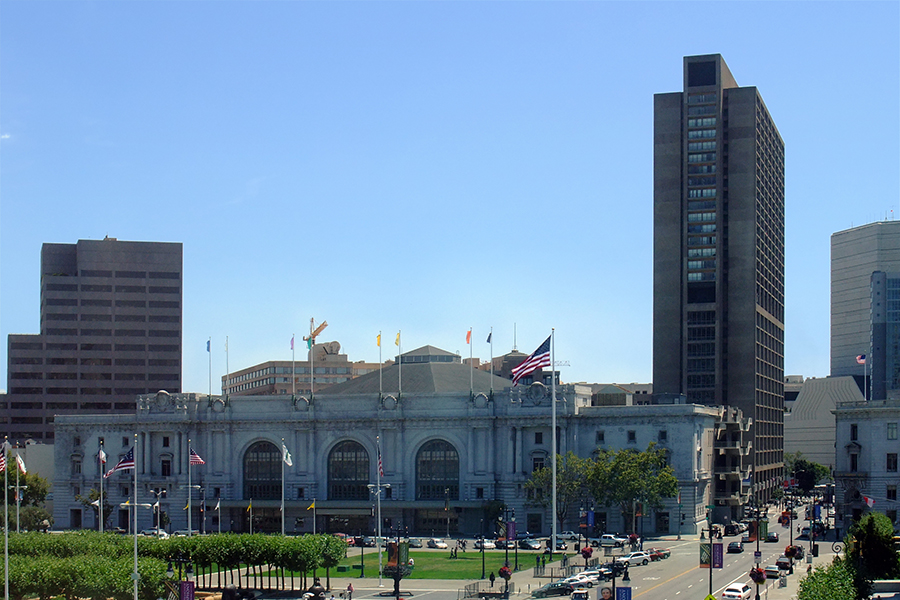Bill Graham Civic Auditorium was considered to house homeless as COVID-19 prevention

Bill Graham Civic Auditorium, Courtesy of Wikimedia Commons.
The San Francisco Human Services Agency had considered using the Bill Graham Civic Auditorium to house people dealing with homelessness in an attempt to prevent the spread of COVID-19 coronavirus, but it was determined to be a bad fit. The CDC issued guidelines that people with the virus, even though who are not showing symptoms, should not be grouped together.
The HSA has been tasked with identifying up to 3,500 hotel rooms to use for isolation for the homeless and people who can’t quarantine, agency Director Trent Rhorer said at Mayor London Breed’s Thursday press conference at the Moscone Center. The city has 19,000 people who are currently living in single-room occupancy hotel rooms with shared bathrooms and kitchens and are not able to practice social distancing and remain six feet apart from others. Some of them may need to be isolated. Additionally, there are thousands of people in homeless shelters or are living on the street.
The city is trying to create as much room at hospitals for those who need beds the most as possible.
“We don’t want people who don’t need to be hospitalized to be there,” Rhorer said.
Hotels have been responsive and have offered up 2,000 rooms, he said, adding that the city will be evaluating their viability. An initial group of people have already been rehoused.
San Francisco also has 2,000 people currently living in existing homeless shelters, and the occupancy of those shelters needs to be reduced to meet social distancing guidelines. That’s where nontraditional sites like music halls may come in.
“There are a lot of sites available to us,” Rhorer said. “We will be accessing those sites.”
He said the “pop-up facilities” will be staffed by people trained to identify people showing symptoms. The city will need to create layouts for how the shelters will be used, secure staffing and find food for these temporary shelters.
For the homeless population that is showing signs of COVID-19 coronavirus but not facing life-threatening emergencies, the city will look to isolate them in hotel rooms, as well as RVs and trailers that will be provided by the state.
Follow editor Roman Gokhman at Twitter.com/RomiTheWriter.
